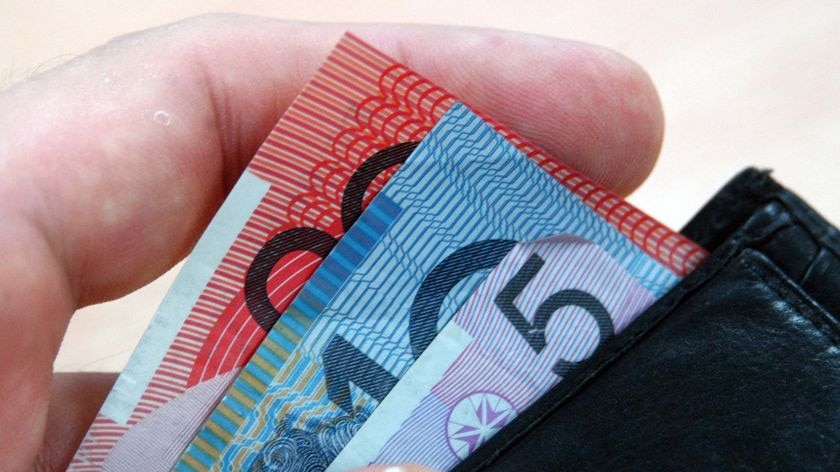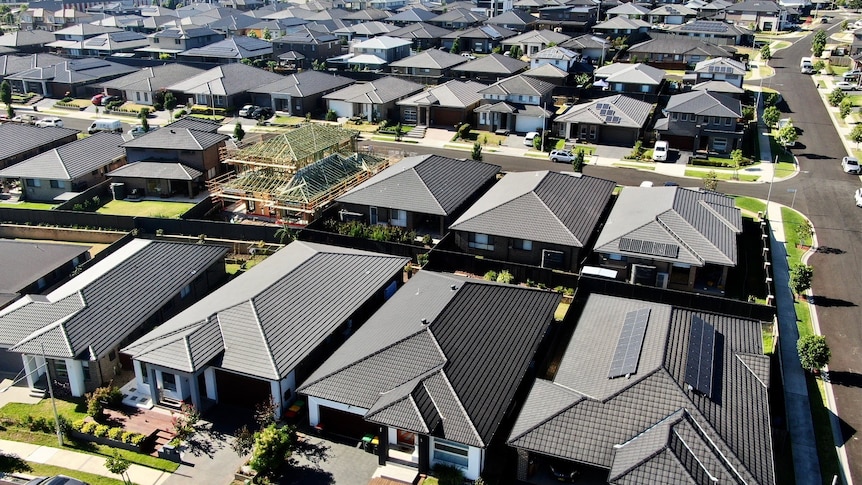This week, in a further attempt to curb rising inflation, the Reserve Bank of Australia (RBA) raised the country’s cash rate for the fourth month in a row.
With the cash rate now at 1.85 per cent, those who took out low-interest loans during the last two years are facing the potential of hundreds of extra dollars each mortgage payment.
But for those who don’t have a mortgage, the concern around rising interest rates might be confusing.
What is the cash rate and why is it going up?
Know how your iceberg lettuce is costing $10 a head right now? It’s just one of the signs of inflation is soaring at the moment.
In June, annual inflation hit 6.1 per cent, the highest level in 21 years. This is due to multiple factors including supply chain interruptions from COVID-19 and the war in Ukraine.
To curb this inflation (the RBA usually likes to have it around 2–3 per cent) the RBA has rapidly been increasing the cash rate since May this year.
This means the amount of interest banks and lenders must pay on the money that they borrow between each other increases.
Banks will usually pass on the rate rise, like we saw earlier this week, and the higher cost of borrowing dampens demand and economic activity.
When it becomes more expensive to borrow money, there’s less demand for goods and services in the economy and the rate of inflation will usually decline.
First home buyers could be pushed back into renting
According to PropTrack senior economist Paul Ryan, a rising cash rate does not automatically mean your rent is going to go up.
“There’s not a direct effect of cash rate onto rents but they’re definitely inter-related,” he said.
“There may be some kind of attentiveness effect here where landlords see rates rise, they assess their costs and that may prompt them to raise rents for renters. But that is not the only reason, the other reason they are able to raise rents because the demand for rentals is so great.”
A combination of factors including returning international students and tourists, as well as housing market changes brought by COVID has seen rents rise dramatically over the last 12 months.
“The story of the pandemic was as preferences shifted towards regional locations, lifestyle locations, bigger homes and that put a lot of pressure on markets outside of capital cities, so we saw regional rent prices rise and capital city prices fall,” Mr Ryan said .
But now, with people returning to capital cities, the pressure is back on rental properties in the city – with the possibility of even more competition caused by ripple effects from interest rate rises.
“You may see some people who would be first home buyers priced out of the market. They can’t borrow as much as they could 12 months ago so that puts upward demand on rentals and on rents,” Mr Ryan said.
Time to be extra thoughtful with your super
Whether you’re proactive with how your superannuation is invested or leave it to your fund, rising interest rates mean it’s time to keep an eye on your super, according to Rainmaker Information’s executive director of research Alex Dunnin.
“Interest rates affect super fund returns, not because fund members invest into interest rates, but because of the way rates affect their investments,” Mr Dunnin said.
Rising interest rates diminish the value of bonds (money slow to a company or government, a typically safe investment), which means the returns from fixed interest portfolios fail.
“Case in point: superannuation options that invest exclusively into bonds have just declared an average sector return of minus-8 per cent. Meaning conservative investors are right now being belted as hard as aggressive investors,” Mr Dunnin said.
“Put another way, investors who played it safe also got smashed.”
It’s not all dire outlooks though, with Mr Dunnin pointing to Australia’s quick bounce back from the 2008 global financial crisis and recovery from the COVID crash of March 2020 as glimmers of hope for the future.
“The take-out from all this is maybe be a bit more thoughtful. While many super funds are getting low returns, some are getting returns much lower than others,” he said.
“The average MySuper return this year is minus-3.6 per cent. The best one delivered 1.4 per cent as the lowest returning one did minus-8.5 per cent. That’s a range of 10 percentage points top to bottom.”
Credit card interest is stable, but now is not the time to pull out the plastic
Since the beginning of the pandemic, the average credit card interest rate has remained steady at 19.94 per cent according to RBA data.
Finder credit card expert Amy Bradney-George says it’s unlikely we’ll see credit card interest rates rise with the cash rates.
“Finder analysis shows that RBA cash rates and credit card interest rates aren’t as closely linked as the cash rate and home loan rates. They don’t really correlate in the same way,” she said.
This is a point of contention for some, with Victorian Treasurer Tim Pallas calling on the federal government to tie cash rates to credit card interest rates in early 2021.
“But when rate increases do put more financial burden on people, we find people turn to their credit cards more. Which in turn leads to credit card debt,” Ms Bradney-George said.
With the cost of living rising, Ms Bradney-George says that many Australians were turning to credit cards to supplement missing income.
“We’re already seeing one-in-six credit card users saying that they have no savings, so they have to rely on their credit card as a buffer,” she said.
“If people are relying on their credit card for everyday spending and not paying it off straight away, the bottom line is those interest charges will add up.”
Ms Bradney-George encouraged those struggling with credit card debt to call their provider or the national debt helpline (1800 007 007) for free advice.
Loading form…
.


